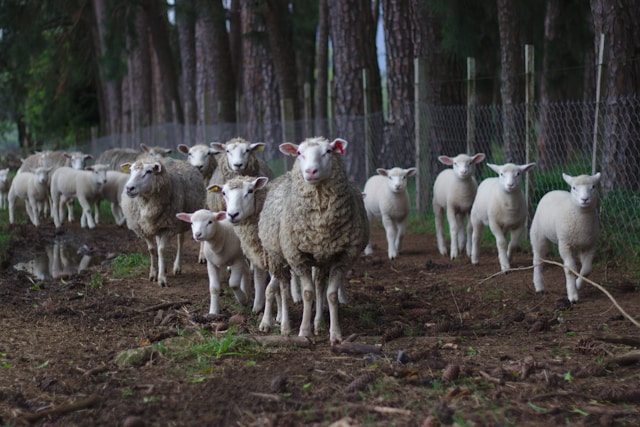This article has been reviewed by Dr. Aparna Devi, MBBS, DFM ( RCGP UK)
The quality of our sleep can be significantly influenced by various factors, including what we eat and when we eat. Digestion is a complex process that requires energy and triggers several physiological responses. These responses can make it difficult to fall asleep, stay asleep, or achieve deep, restorative sleep. This article explores how the food we eat affects our sleep and explains the types of foods that are best to avoid before bedtime.
The Physiology of Digestion and Its Impact on Sleep
Digestion begins as soon as we start eating. The body diverts blood and energy to the stomach and intestines to break down food into absorbable nutrients. This process involves the secretion of stomach acid, digestive enzymes, and bile, as well as the movement of food through the digestive tract. While these processes are essential for nutrient absorption, they can also have a significant impact on sleep, particularly when they occur close to bedtime.
- Increased Energy Expenditure and Blood Flow
When the body is actively digesting food, it requires an increased amount of energy. This energy demand results in the diversion of blood flow from other areas of the body to the digestive system. This process keeps the body active, even if we are trying to rest. The increased energy expenditure generated by digestion can delay the onset of sleep or lead to restless sleep.
- Hormonal Responses and Blood Sugar Fluctuations
Eating triggers the release of various hormones, including insulin, which helps regulate blood sugar levels. In particular, consuming food high in carbohydrate or sugar can cause a rapid spike in blood sugar, followed by a crash. These fluctuations can trigger the release of stress hormones like adrenaline and cortisol. In turn, elevated cortisol levels can interfere with the natural sleep-wake cycle, making it difficult to fall asleep or stay asleep.
Foods that Mess Up with your Sleep
Different types of foods can have varying effects on sleep, depending on their composition and the timing of consumption. Understanding which foods are more likely to disrupt sleep can help us make better dietary choices and improve the quality of our sleep.
- Caffeine: The Well-Known Sleep Disruptor
Caffeine is a widely consumed stimulant. It is present in coffee, tea, some medications, as well as chocolate. Caffeine blocks adenosine, a neurotransmitter that promotes sleep, and stimulates the release of adrenaline, which can keep you awake. The effects of caffeine can last for several hours, depending on the individual’s sensitivity and metabolism. Even if consumed in the afternoon, caffeine can still interfere with sleep later in the night by delaying the onset of sleep and reducing total sleep time.
- Sugar and Refined Carbohydrates: Sleep Quality Saboteurs
High sugar intake, particularly in the evening, can lead to blood sugar spikes and crashes, triggering the release of stress hormones that disrupt sleep. Additionally, sugary foods and refined carbohydrates can cause lighter, less restorative sleep, with more frequent awakenings during the night. These foods cause an increase in insulin production, which may lower blood sugar levels too quickly. This rapid drop can lead to hypoglycemia, potentially waking you up in the middle of the night.
- Spicy Foods: Causing Discomfort and Sleeplessness
Spicy foods can cause discomfort, heartburn, and acid reflux, especially when consumed close to bedtime. Capsaicin, the compound responsible for the heat in spicy foods, can increase body temperature. This can interfere with the natural drop in core body temperature needed for sleep. Additionally, lying down after eating spicy foods can exacerbate symptoms of acid reflux, leading to discomfort and disrupted sleep.
- High-Fat Foods: Hard to Digest and Sleep-Disturbing
Foods high in fat, such as fried foods, fatty meats, and rich desserts, take longer to digest. This slow digestion process can lead to discomfort, indigestion, and bloating, making it harder to get comfortable and fall asleep. Furthermore, a diet high in saturated fats has been linked to lighter sleep and more frequent awakenings during the night. This is because high-fat foods can alter the balance of sleep stages, particularly reducing the amount of REM sleep, which is crucial for cognitive function and emotional regulation.
- Alcohol: A Double-Edged Sword for Sleep
Alcohol is often consumed as a relaxant, but its effects on sleep are complex and generally negative. While alcohol may initially make you feel sleepy, it disrupts sleep later in the night by reducing REM sleep, the most restorative stage of sleep. Alcohol also relaxes the muscles of the throat, increasing the likelihood of snoring and sleep apnea, which can cause frequent awakenings. Moreover, as the body metabolises alcohol, it can lead to dehydration, night sweats, and the need to urinate more frequently–all of which can disrupt sleep.
- Heavy Meals: Overloading the Digestive System
Eating large meals late at night can overwhelm the digestive system, leading to discomfort, indigestion, and heartburn. When you consume a heavy meal, especially one that is rich in fats, proteins, or complex carbohydrates, your body must work harder to digest the food. This increased digestive activity can keep your body awake and prevent you from falling into a deep sleep. Additionally, a full stomach can increase your core body temperature, which can interfere with sleep.
- High-Protein Foods: Delaying Sleep Onset
Protein is an essential nutrient, but consuming high-protein foods right before bed can be challenging for your digestive system. Protein-rich foods require more time and energy to digest, which can lead to discomfort and delay sleep onset. Additionally, some proteins contain tyrosine, an amino acid that can increase brain activity and make you more alert, further interfering with your ability to fall asleep.
- Foods High in Tyramine: Stimulating the Brain
Tyramine is an amino acid that can trigger the release of norepinephrine, a brain stimulant. Foods high in tyramine include aged cheeses, cured meats, fermented foods, and some wines. Consuming these foods close to bedtime can increase brain activity, making it harder to relax and fall asleep.
The Gut-Brain Connection: How Digestion Influences Sleep
The gut and brain are closely connected through the vagus nerve, which transmits signals between the digestive system and the brain. This connection is often referred to as the gut-brain axis. The gut-brain axis plays a significant role in regulating sleep, as the gut produces several neurotransmitters and hormones that influence sleep-wake cycles.
- The Role of the Vagus Nerve
The vagus nerve is the primary conduit of communication between the gut and the brain. It is responsible for transmitting information about the state of the digestive system to the brain. When the vagus nerve is activated during digestion, it can influence brain activity and affect sleep. For example, feelings of fullness or discomfort after a large meal can trigger signals in the brain. These stimuli can make it difficult to relax and fall asleep.
- Neurotransmitters and Hormones
The gut produces several neurotransmitters that are crucial for sleep, including serotonin and melatonin. Serotonin is a precursor to melatonin, the hormone that regulates the sleep-wake cycle. A healthy gut is essential for the production of these neurotransmitters, which in turn influence sleep quality. However, disruptions in digestion can affect the production of these neurotransmitters and hormones, leading to sleep disturbances.
- Circadian Rhythm and Digestion
The circadian rhythm is the body’s internal clock that regulates sleep-wake cycles, among other physiological processes. Eating at irregular times, particularly late at night, can disrupt the circadian rhythm and interfere with sleep. The body’s natural circadian rhythm expects certain activities, such as eating, to occur during the day and sleep to occur at night. When this rhythm is disrupted, it can lead to difficulty falling asleep, staying asleep, and waking up at the desired times.
Practical Tips for Optimising Digestion and Sleep
To promote better sleep, it’s important to consider not only what you eat but also when you eat. Making mindful dietary choices and adopting healthy eating habits can significantly improve both digestion and sleep quality.
- Eat Earlier in the Evening
One of the most effective ways to minimise the impact of digestion on sleep is to eat your last meal at least 3-4 hours before bedtime. This gives your body enough time to digest, allowing your digestive system to wind down before you go to sleep. By eating earlier in the evening, you reduce the likelihood of experiencing digestive issues that can disrupt sleep.
- Choose Lighter, Easy-to-Digest Foods
Opting for lighter meals that are easy to digest can also help improve sleep quality. Foods that are low in fat, moderate in protein, and rich in complex carbohydrates are generally easier on the digestive system. For example, a meal consisting of lean protein (like chicken or fish), whole grains (like brown rice or quinoa), and vegetables is less likely to cause digestive discomfort than a heavy, high-fat meal.
- Avoid Foods That Trigger Indigestion
If you’re prone to indigestion or acid reflux, it’s important to avoid foods that trigger these conditions, especially in the evening. Spicy, acidic, and fatty foods are common culprits. Instead, choose bland, soothing foods that are less likely to irritate your digestive system. Foods like oatmeal, bananas, and yogurt are gentle on the stomach and can promote better sleep.
- Limit Caffeine and Alcohol Intake
To avoid the sleep-disrupting effects of caffeine, try to limit your intake to the morning hours and avoid consuming it in the afternoon or evening. Similarly, while alcohol may seem like a good way to unwind, it’s best to limit your intake, particularly close to bedtime. If you do choose to drink alcohol, try to have it earlier in the evening to allow your body time to metabolise it before sleep. Remember to hydrate well whenever you consume alcohol to limit its effects.
- Maintain a Regular Eating Schedule
Consistency is key when it comes to promoting healthy digestion and sleep. Try to maintain a regular eating schedule, with meals spaced evenly throughout the day. This can help regulate your circadian rhythm and improve both digestion and sleep quality. By eating at the same times each day, you signal to your body when to expect food. This trick can help optimize your digestive processes and prevent late-night eating.
- Incorporate Sleep-Promoting Foods
Some foods can actually promote better sleep by supporting the production of sleep-inducing hormones and neurotransmitters. Foods rich in tryptophan, such as turkey, eggs, and dairy products, can help increase the production of serotonin and melatonin. Additionally, foods that are high in magnesium, such as nuts, seeds, and leafy greens, can help relax the muscles and promote restful sleep.
Conclusion
By understanding the connection between digestion and sleep and adopting healthy eating habits, you can improve your sleep quality and overall well-being. At Even, our experts can guide you through the process, charting out dietary regimen to control blood sugar spikes and manage chronic conditions that may have an impact on your sleep. If you are a member and looking to improve your sleep, mood, or general health, please contact your Even nutritionist.


